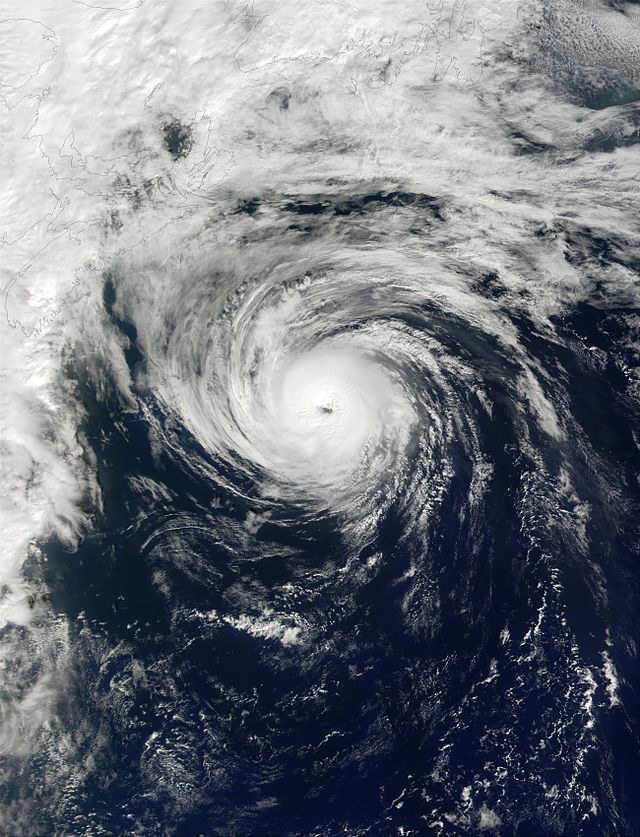Every year, the Atlantic hurricane season runs from June 1 to November 30 — but the Sunshine State has had an outlier in recent years, with storms forming around the state by mid-May. Tropical storm activity in Florida is typically highest in August and September. During hurricane season, the Sunshine State is more vulnerable to hurricanes than any other state in the United States. Since 1851, 120 hurricanes have made landfall in the United States, nearly twice as many as Texas, the state with the second-highest hurricane risk. With 1,350 miles of coastline on both the Gulf and Atlantic coasts, residents in Florida must be extra prepared for hurricane season. This entails devising an emergency plan, fortifying your home, and ensuring that your home and flood insurance are both fully covered.
What month has the most hurricanes in Florida?
While hurricanes can strike at any time during the hurricane season, the most likely time for a hurricane to hit Florida is between mid-August and late October. September 10th marks the official start of hurricane season. The National Oceanic Atmospheric Administration (NOAA) predicted a 65% chance of “above normal” activity for the 2022 hurricane season, implying a higher frequency of storms than the century average. With 21 named storms and seven hurricanes making landfall, the Atlantic hurricane season of 2021 was the third busiest ever. The hurricane season forecast from NOAA for 2022 is as follows:
- In the forecast, there are 14 to 21 named storms.
- Six to ten of them have the potential to develop into hurricanes (with winds of 74 mph or higher).
- Three to six major hurricanes, with winds of 111 mph or higher, are expected to hit the United States.
In Florida, where do hurricanes strike the hardest?
The southwestern Florida county of Monroe has been hit by more hurricanes than any other, followed by Miami-Dade and Broward Counties to the east. Hurricane Irma flooded Miami-Dade County in 2017, causing four to six feet of water to rise. The midwestern coast of Florida is the part of the state with the least amount of hurricanes. You enter hurricane territory again as you travel further northwest into the Panhandle. In recorded history, the Florida Panhandle has been hit by 66 hurricanes, 14 of which were Category 3, 4, or 5 storms.
Here’s what you need to know about hurricane season in Florida
If you live along Florida’s coast, make sure you and your family are prepared in the event of a hurricane. Hurricanes frequently bring strong winds and flooding, so make sure your home is ready and that you have adequate insurance coverage to cover any property damage.
The calm before the storm
- Make a strategy for yourself and your family.
- Make a first-aid kit with the essentials.
- Create digital copies of important documents and keep them in a waterproof container.
- Register for emergency storm alerts in your neighborhood or across the country.
- Understand the flood risk that your home faces.
- Purchase flood insurance — homeowners insurance does not cover flooding, so you’ll need flood insurance to cover the flooding caused by a hurricane.
- Make a plan for an evacuation.
Throughout the storm
- Weather warnings should be followed.
- Stay away from areas that have been flooded or are being affected by hurricane winds.
- Contact disaster relief or look for a shelter in your area.
- In the event of a flood, call Florida 511 to check on road conditions.
Following the storm
- Pay attention to local officials for updates on when it’s safe to return home and any special instructions.
- While cleaning up mould or other debris from your home, wear protective clothing, such as gloves and face coverings.
- For wind or water damage to your home, file a claim with your home or flood insurance provider.
- Videos and photographs should be used to document any property damage.
Insurance considerations for hurricane season in Florida
If you live in Florida, you should think about purchasing additional insurance to cover any gaps in your home insurance coverage. In addition, Florida is one of 19 states that has a separate hurricane season for insurance purposes. Here are some things to remember about insurance during hurricane season.
When filing a claim, you’ll have to pay a hurricane deductible.
When filing a claim for hurricane damage along the Atlantic coast, many insurers require you to pay a separate deductible. Unlike standard deductibles, hurricane deductibles are calculated as a percentage of the insured’s annual income. In Florida, you can usually choose between a 2%, 5%, or 10% deductible.
This is how it goes.






